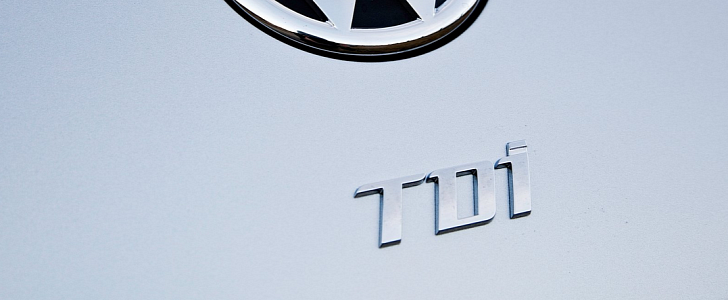Ever wondered why Volkswagen and Audi are the only companies to successfully sell small diesel engines in America? The Environmental Protection Agency (EPA) may have found out the reason, an illegal “defeat device” installed on 2-liter TDI engines that temporarily reduces emissions during lab tests.
This has the makings of 2015’s biggest scandal. Not only does it mean 482,000 cars may be withdrawn from the market, but Volkswagen Group also faces a fine of $18 billion.
That’s billion with a “B”, and to put that into perspective, Audi’s entire investment plan until 2020 is worth $22 billion. That's what they'll use to develop 10 cars, several new technologies and build factories all over the world. So if the US government imposes the maximum penalty, it could force VW out of the diesel market and hurt their profits dearly.
All affected vehicles belong to the 2009 to 2015 model years and are equipped with a 2.0-liter TDI Clean Diesel engine. The list includes the Beetle, Golf, Jetta sedan and wagon, Passat and Audi A3.
The system has allowed Audi and Volkswagen models to comply fully with more stringent emissions standards. However, nitrogen oxide levels have been found to be as high as 40 times the legal limit under real world conditions.
Basically, all these cars could be considered broken, and recall may be out of the question. The EPA is unlikely to be lenient towards Volkswagen since NOx gasses and other diesel byproducts have been linked to cancer.
We've heard rumors that many other companies use special hidden software to temporarily lower fuel consumption when tests are being carried out, and we're not just talking about diesels.
Over in Europe, the future of diesel engines seems increasingly uncertain, as Paris and many other capitals could ban the use of dCi and TDI engines by 2020.
That’s billion with a “B”, and to put that into perspective, Audi’s entire investment plan until 2020 is worth $22 billion. That's what they'll use to develop 10 cars, several new technologies and build factories all over the world. So if the US government imposes the maximum penalty, it could force VW out of the diesel market and hurt their profits dearly.
Affected models
According to the EPA, this software has been installed on approximately 482,000 vehicles. Compared to the tens of millions of cars recalled because of Takata airbags, that doesn’t seem like a lot. However, VW and Audi may have to buy back each and every one from the customers while facing a maximum fine of $37,500 per car.All affected vehicles belong to the 2009 to 2015 model years and are equipped with a 2.0-liter TDI Clean Diesel engine. The list includes the Beetle, Golf, Jetta sedan and wagon, Passat and Audi A3.
What is the “defeat device”?
A special software installed on these models can automatically detect when they are undergoing emissions testing. When this happens, the full emissions controls device is activated. However, the defeat device becomes inactive in the real world, dramatically increasing greenhouse gas production.The system has allowed Audi and Volkswagen models to comply fully with more stringent emissions standards. However, nitrogen oxide levels have been found to be as high as 40 times the legal limit under real world conditions.
Basically, all these cars could be considered broken, and recall may be out of the question. The EPA is unlikely to be lenient towards Volkswagen since NOx gasses and other diesel byproducts have been linked to cancer.
The future is uncertain for diesel engines in general
VW has a sort of monopoly on diesel sales in America, but other companies offer similar engines. For example, Mercedes offers them on the C-Class and the GLC/GLK and even Chevrolet has one on the Cruze sedan.We've heard rumors that many other companies use special hidden software to temporarily lower fuel consumption when tests are being carried out, and we're not just talking about diesels.
Over in Europe, the future of diesel engines seems increasingly uncertain, as Paris and many other capitals could ban the use of dCi and TDI engines by 2020.

